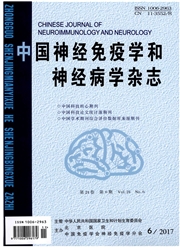

 中文摘要:
中文摘要:
阿尔茨海默病(AD)的主要病理特征是Aβ的广泛聚集、tau蛋白的过度磷酸化及神经元细胞的大量损伤,其病因及发病机制复杂,目前尚无有效治疗方案。近年来的分子生物化学及免疫组织化学的研究表明,AD患者脑内存在着局部炎症反应,以小胶质细胞过度激活及产生大量自由基和炎性因子为特征,并认为这种神经免疫炎症与AD的发病密切相关。同时,通过采用相应的抗炎抑炎治疗,对AD取得了一定治疗效果,临床症状得以减轻。本文就AD发病机制中相关免疫炎症反应做一综述。
 英文摘要:
英文摘要:
The main pathological features of Alzheimer disease (AD) is the extensive aggregation of Abeta, excessive phosphorylation of tau protein and a large number of neuronal cell damage. Its etiology and pathogenesis is complex, there is no effective treatment program. In recent years the biochemistry and molecular and immunohistochemical study had showed that in the brain of AD patients exist local inflammation, microglia over activated, and produce a large number of free radicals and inflammatory factor characteristics, and that the neural immune- inflammatory and AD is closely related to the incidence. At the same time, by using the corresponding anti-inflammatory treatment, AD achieved a certain therapeutic effect, clinical symptoms can be reduced. In this paper, a review of the related immune inflammation in the pathogenesis of AD is reviewed.
 同期刊论文项目
同期刊论文项目
 同项目期刊论文
同项目期刊论文
 期刊信息
期刊信息
